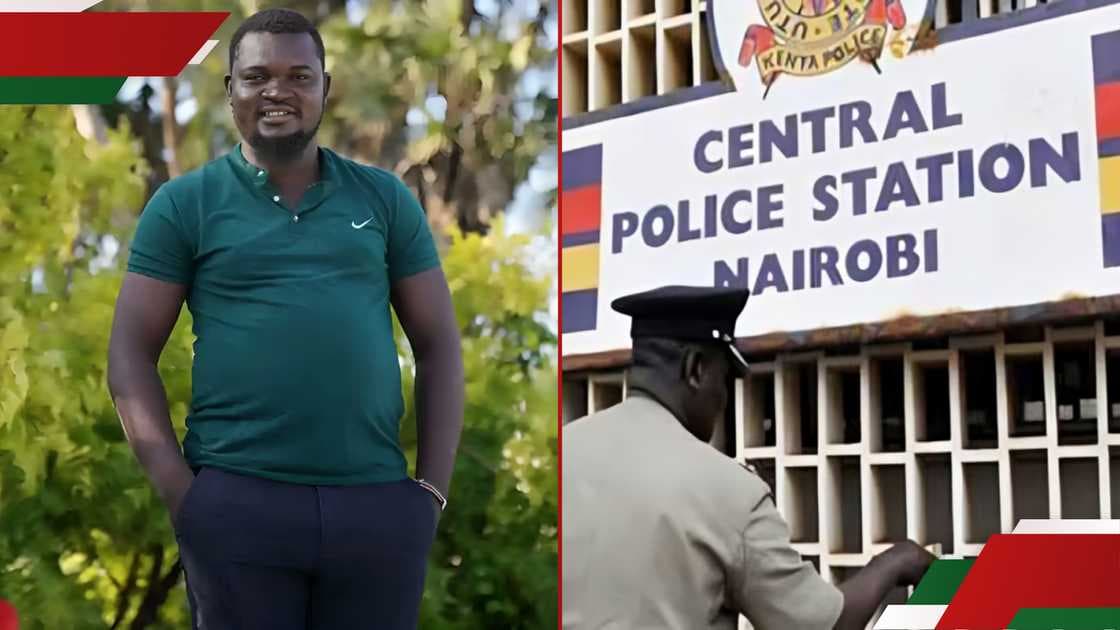We're loading the full news article for you. This includes the article content, images, author information, and related articles.
Kenya's police oversight body has initiated an investigation into the death of blogger Albert Ojwang, who died in police custody in Nairobi after being arrested in Homa Bay for an alleged "false publication" online. Rights groups have called the circumstances of his death "very suspicious."

NAIROBI, Kenya – Outcry as Blogger Dies in Police Custody: IPOA Opens Probe Into Mysterious Death of Albert Ojwang
Kenya’s Independent Policing Oversight Authority (IPOA) has launched a formal investigation into the disturbing death of a man who died in police custody under murky circumstances after being arrested for allegedly publishing “false information” online. The deceased, Albert Ojwang, has been described by family and civil society groups as a respected teacher, blogger, and advocate for social justice.
The case has sparked public outrage and raised fresh concerns over freedom of expression, abuse of cybercrime laws, and the growing perception that critics of powerful individuals are being silenced through intimidation or worse.
Ojwang, who was arrested in Homa Bay, western Kenya, was reportedly taken into custody without a clear warrant or charge sheet. According to his father, Meshack Opiyo, police officers claimed his son had "insulted a senior person on X (formerly Twitter),” a charge that falls under the controversial Computer Misuse and Cybercrimes Act.
Rather than being processed at a local police station, Ojwang was inexplicably transported over 350 kilometers to Nairobi, raising questions about due process and police intentions. It was in Nairobi that he reportedly sustained fatal head injuries while in custody. A police statement alleged that Ojwang “hit his head against a cell wall” and later died upon arrival at a nearby hospital.
That explanation, however, has been widely rejected by the public, with human rights groups, activists, and concerned citizens calling for independent verification of the facts.
“This story doesn’t add up. There are too many inconsistencies,” said Irungu Houghton, Executive Director of Amnesty International Kenya. “Why was he transported to Nairobi? Why wasn’t his family notified immediately? And why is the police account of his death so vague?”
Amnesty International has demanded that the police holding cell be sealed off as a crime scene and that all officers involved be suspended pending investigation.
Ojwang’s death comes amid a troubling series of incidents in which Kenyan citizens have been detained, charged, or harassed for expressing dissenting views online. Just last week, Rose Njeri, a Nairobi-based software developer, was charged under the same cybercrime law after publishing content critical of a prominent government figure. The back-to-back arrests have stoked fears that the Computer Misuse and Cybercrimes Act, originally intended to combat online fraud and misinformation, is being weaponized to stifle dissent.
“This isn't about misinformation anymore — it's about silencing digital activism,” said Martha Kigen, a legal expert with the Kenya Internet Rights Forum. “The cybercrime law is becoming a smokescreen for censorship.”
Ojwang’s grieving father, struggling to process the loss, is now demanding justice and transparency. “My son was not a criminal. He was a teacher, an honest man who loved his country and spoke his mind. Now he's gone, and no one is taking responsibility,” Opiyo said in an emotional statement outside the family home in Homa Bay.
IPOA has promised a “comprehensive and impartial investigation”, pledging to leave no stone unturned. Civil society organizations are calling for an independent autopsy, the release of CCTV footage from the holding facility, and parliamentary oversight into the broader pattern of arrests under the cybercrime law.
The tragic death of Albert Ojwang has once again thrown a spotlight on Kenya’s fragile balance between state security and civil liberties. While the government insists it is upholding law and order in the digital age, critics warn that a free society cannot thrive when fear is the price of expression.
As the investigation unfolds, the question on many Kenyans' minds is no longer just “What happened to Albert Ojwang?” — but “Who’s next?”
Keep the conversation in one place—threads here stay linked to the story and in the forums.
Sign in to start a discussion
Start a conversation about this story and keep it linked here.
Other hot threads
E-sports and Gaming Community in Kenya
Active 9 months ago
The Role of Technology in Modern Agriculture (AgriTech)
Active 9 months ago
Popular Recreational Activities Across Counties
Active 9 months ago
Investing in Youth Sports Development Programs
Active 9 months ago